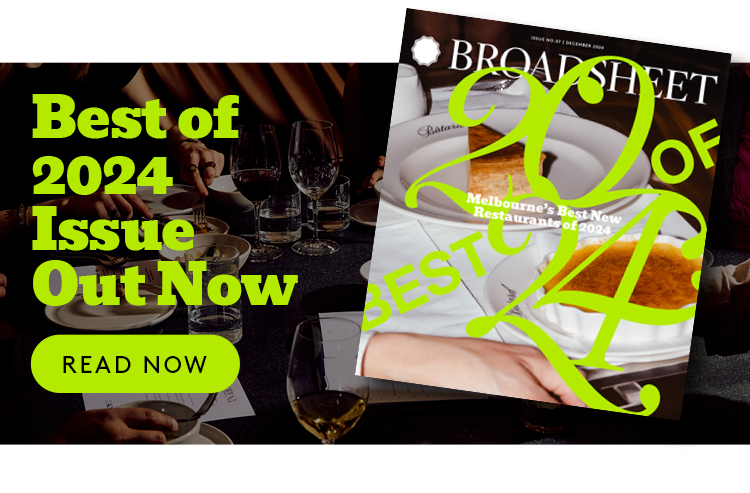First it was instant-coffee sachets. Now, it’s coffee pods. Melbourne cafe-roastery St Ali continues to riff on the instantification of coffee, dropping recyclable capsules for Nespresso-compatible machines.
“What we’ve been able to achieve here is to roast delicious specialty coffee in small batches and get that coffee into recyclable and, in the near future, biodegradable coffee pods,” says St Ali founder Salvatore Malatesta.
Cue a collective eye roll from coffee purists nationwide – Malatesta has a hard task convincing them a coffee pod falls under that narrow “specialty” umbrella.
Specialty is a term that’s often misused. True specialty coffee demands a high level of diligence, one that’s maintained throughout the entire supply chain right through to service. Shouldn’t the ritual of consumption pay respect to everyone who has contributed to our enjoyment of the product? Is bunging a pod in a machine while you hop in the shower discourteous? Malatesta thinks so – in principal.
“I think that, if I’m using my heart and mind, that specialty in its original iteration was a commitment to craft as much as it was a commitment to grade,” he says. “If we follow that to its logical conclusion, automation is inconsistent with craft and inconsistent with specialty.”
Let’s pause to look at the semantics. Any Arabica coffee to score above 80 points on the Specialty Coffee Association of America (SCAA)’s global system is classed as “specialty-grade”. Those scoring below 80 are “commercial” or “commodity-grade”.
Like most roasters worth their salt, St Ali doesn’t deal in commodity-grade product. Their pods are – technically – “specialty-grade”, which is a more appropriate term than “specialty” which has implications for brewing and service.
The distinction may seem trivial, but it’s the root of one of the most pressing issues confronting the coffee industry today. Bundling everything (including new instant forms) into a single category muddies the conversation around what does and doesn’t benefit producers. It’s important to separate the leaders paying top dollar for superior product and supporting a sustainable industry from those riding their coattails with cheap, barely 80-point coffees.
In terms of flavour, St Ali’s pods yield better flavour than store-bought alternatives, because the raw product is of a higher quality to begin with – so there’s that. But extracting an 89-point coffee through a cheap, automated machine can be compared to straining fine wine through a sock. So why do it?
To Malatesta, it’s about more than flavour – it’s about social responsibility. He hopes a specialty-grade pod on the shelves will positively impact the oftentimes shady world of coffee sourcing.
“If we can capture that user who would otherwise be drinking a cheap grade of coffee that does more harm than not to the growers, then we’re helping shape a future where larger companies dealing in [commodity-grade coffee] might have to take a look at their practices.
“Every time we become an irritant to a larger player, it causes their behaviours to shift,” says Malatesta. “The volumes we buy are fuck all in the scheme of third-world coffee poverty … it’s the collective movement that has an impact.”
There are three varieties in the new range: St Ali’s most popular blend, Orthodox; decaf; and single origin. The packaging details country of origin, growing region or farm, cultivation and processing method.
And, at $9 for 10 capsules, St Ali’s pods will set you back less than a barista-made version, but more than a Nespresso capsule 10-pack, which starts at $6.90.
Despite the accessible price point (machinery excluded) when Aussies brew at home, we’re still far more likely to reach for a jar of instant than pods, or even coffee beans. Last year, revenue from whole bean sales was $279.47 million, compared with more than $1.7 billion for instant.
Even as he forges ahead in the pursuit of efficiency, Malatesta favours “the mindful consumption of delicious coffee”. Old-school coffee making can be finicky and it can be time-consuming, but it may also provide a beat that allows us to focus, exhale and really engage with a beautiful process.
If you don’t have time for that, St Ali’s pods are a pretty decent second prize.











